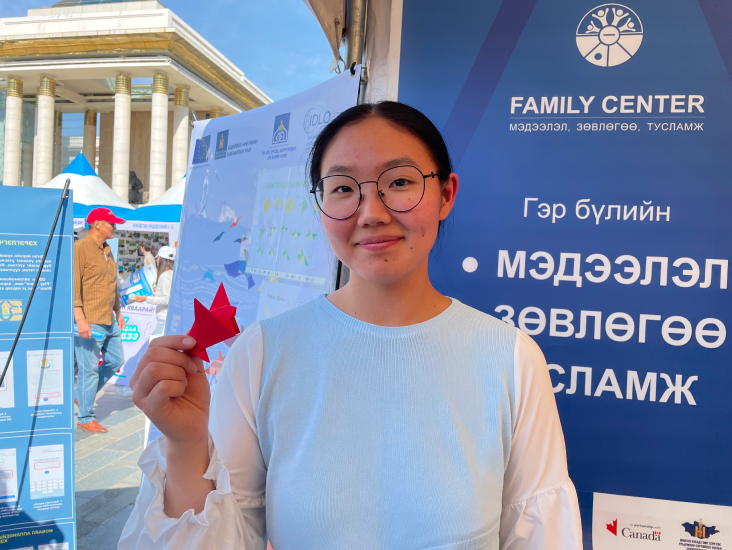
In Mongolia, patriarchal norms, remote terrain and nomadic lifestyles all limit access to justice in cases of domestic violence. IDLO is collaborating with the Government, justice sector institutions, professional associations of lawyers, academia and CSOs to address these barriers.
Working with local CSOs, IDLO is helping to increase access to justice for survivors of gender-based violence (GBV) through research, training and awareness-raising campaigns. In 2022, in the province of Arkhangai, pilot mobile GBV services reached 19 of Mongolia’s secondary subdivisions, known as soums. Over 70 days, they covered 6,997 km and reached 7,060 people with information and support services that included primary legal advice, psychological counselling, referral services and community sessions to raise legal awareness.
In the province of Uvs, as the head of the local branch of Sain Tus (a leading NGO tackling GBV), Dulmaa Dugerjav took part in training to improve services for survivors of domestic violence. “The project … has played an important role in strengthening the coordination between local governments and civil society and substantially advanced these partnerships toward enhancing a victim-centred approach,” she comments.
With the project’s support, Sain Tu Uvs reached 1,008 beneficiaries in 2022, including through trainings, advocacy meetings and the implementation of a sub-project using targeted informational workbooks. Outreach to men and boys was part of a strategy to raise awareness among all members of the community. This included convening Men’s Leadership and Participation in Gender Equality, the region’s first-ever men’s forum, which brought together 56 local decision-makers and 135 participants to raise awareness on how to stop GBV.
One result was a set of recommendations to achieve gender equality and end GBV in Uvs. These included putting in place mechanisms to prevent domestic violence and workplace harassment, improving men’s health, establishing boys’ clubs at schools, increasing the number of school psychologists and holding parents accountable for educating their children on concepts of gender equality.

